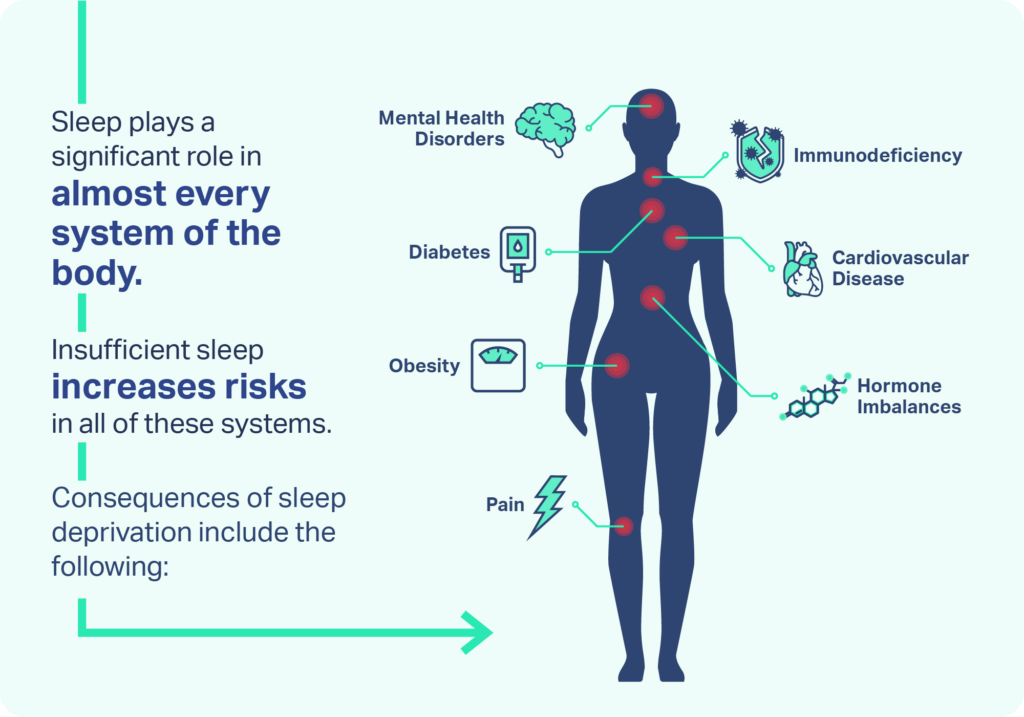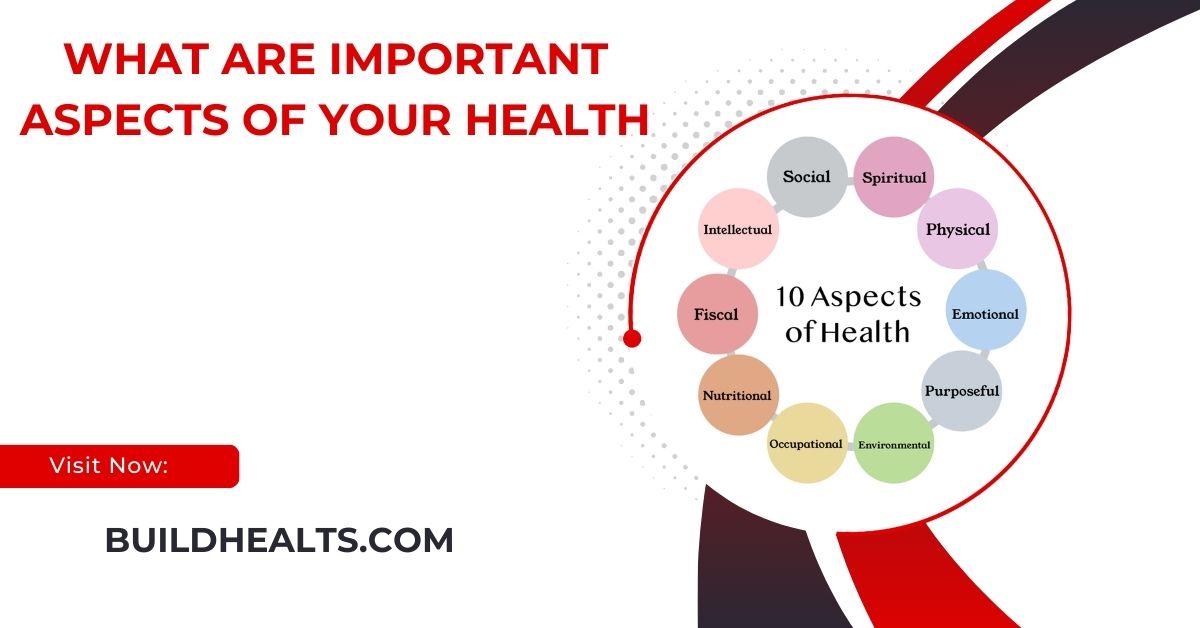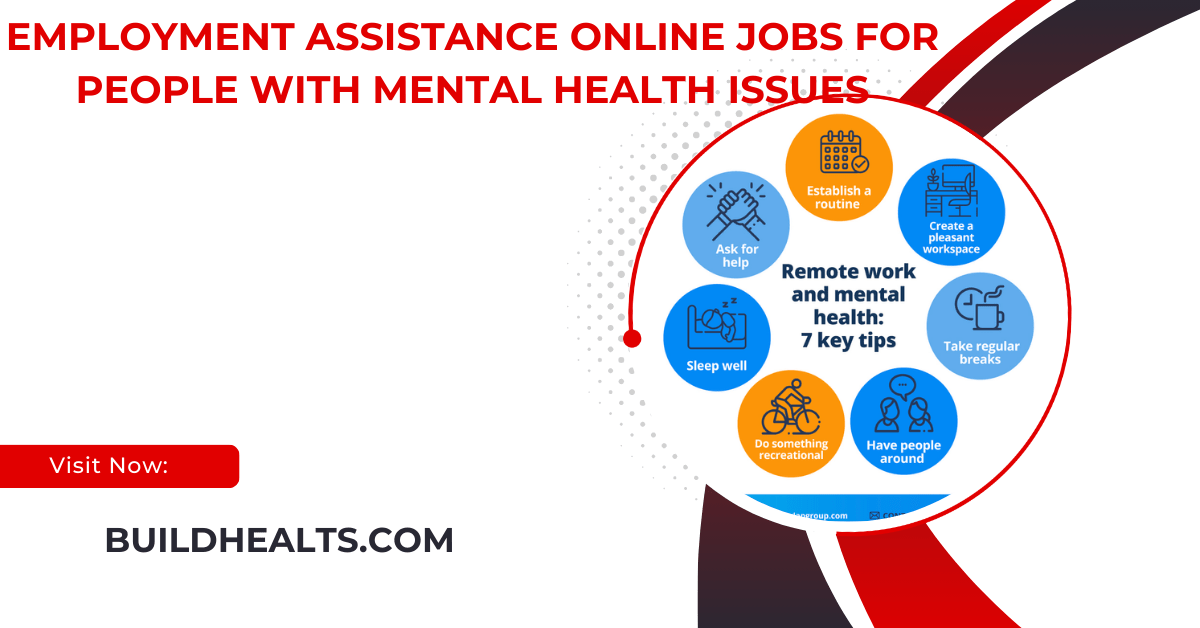Health is a holistic blend of physical, mental, and social well-being. Key aspects include nutrition, exercise, sleep, stress management, and social connections.
In this article, we will explore the key components of health, offering insights into how each plays a vital role in our lives.
Understanding Health:

Health is often defined as a state of complete physical, mental, and social well-being, transcending the mere absence of disease. It emphasizes a holistic approach, recognizing that various dimensions of life interconnect and impact overall health. By considering physical fitness, emotional stability, and social connections, individuals can strive for a balanced lifestyle.
The Importance of Health:
Good health plays a vital role in enhancing quality of life, increasing productivity, and promoting longevity. It enables individuals to engage fully in daily activities and pursue personal and professional goals. Understanding the different aspects of health is crucial for making informed lifestyle choices that foster overall well-being and resilience against illnesses.
Physical Health:
Physical health is the foundation of overall well-being. It refers to how well your body functions and includes several factors such as nutrition, exercise, sleep, and lifestyle choices. Here are some important aspects of physical health:
Nutrition:
Nutrition is crucial for maintaining good health. A balanced diet supplies essential nutrients for energy, growth, and repair. Key points include:
Understanding Macronutrients:
- Carbohydrates: The primary energy source. Include whole grains, fruits, and vegetables for complex carbs.
- Proteins: Important for tissue building and repair. ources include lean meats, fish, beans, and lentils.
- Fats: Healthy fats, found in avocados, nuts, and olive oil, support brain health. Limit trans and saturated fats.
Portion Control:
Understanding serving sizes can prevent overeating. Use smaller plates, pay attention to hunger cues, and eat slowly to recognize fullness.
Limit Added Sugars and Salt:
High sugar intake can lead to obesity and diabetes, while excessive salt can raise blood pressure. Read food labels to make informed choices.
Mindful Eating:
Focus on what you eat and savor each bite. This practice can improve your relationship with food and promote healthier choices.
Exercise:
Regular physical activity is vital for a healthy body. It helps control weight, reduces chronic disease risk, and improves mental health. Important aspects include:
Types of Exercise:
- Aerobic Activity: Engage in activities like walking, running, cycling, or swimming for at least 150 minutes per week.
- Strength Training: Use weights or resistance for muscle building at least twice a week.
- Flexibility and Balance: Incorporate stretching, yoga, or tai chi to enhance flexibility and prevent injury.
Finding Your Motivation:
Choose enjoyable activities. Dancing, hiking, or playing sports makes it easier to stay consistent.
Set Realistic Goals:
Start with achievable targets, like walking 10 minutes daily, and gradually increase your activity level. Celebrate your progress.
Also read: Is There A Plan Participation Requirement For Health Connector Business – A Complete Guide!
Sleep:
Quality sleep is essential for overall health, allowing your body to repair and recharge. Consider these factors:
Importance of Sleep:
Good sleep supports brain function, emotional well-being, and regulates hormones related to appetite and stress.
Sleep Hygiene Tips:
- Comfortable Sleep Environment: Ensure your bedroom is dark, quiet, and cool. Buy a mattress and pillows that provide good support.
- Set a Consistent Schedule: Aim to go to bed and wake up at the same time each day to help maintain your body’s internal clock.
- Limit Stimulants: Avoid caffeine and nicotine before bedtime and limit heavy meals and alcohol to improve sleep quality.
Mental Health:

Mental health is equally important as physical health.It includes your emotional, psychological, and social health.Understanding the aspects of mental health can improve your quality of life. Here’s what you need to know:
Stress Management:
Managing stress is crucial for mental health. Chronic stress can lead to various health problems, including anxiety and depression. Here are some effective strategies:
- Identify Stressors: Recognize what causes you stress, whether it’s work, relationships, or financial issues.Recognizing your triggers can assist you in creating effective coping strategies.
Stress-Relief Techniques:
- Deep Breathing Exercises: Take slow, deep breaths to calm your mind and reduce anxiety.
- Physical Activity: Regular exercise can help lower stress levels and improve mood by releasing endorphins.
- Relaxation Techniques: Practices like meditation, yoga, or tai chi can promote relaxation and help you manage stress.
Social Connections:
Social health is an essential part of overall well-being. Building strong relationships with friends and family can positively impact your mental health. Here are some ways to enhance your social connections:
- Stay in Touch: Make it a habit to regularly connect with friends and family.Make time for phone calls, video chats, or in-person visits to strengthen bonds.
- Join Clubs or Groups: Engaging in community activities or clubs can help you meet new people and foster friendships.
- Be a Good Friend: Offer support and understanding to your loved ones. Building trust and being there for each other can strengthen relationships.
Seeking Help:
If you are experiencing mental health challenges, seeking help is essential.Here are some options to explore:
- Therapists and Counselors: Professionals can provide support and coping strategies for dealing with anxiety, depression, and other mental health issues.
- Support Groups: Connecting with individuals who have similar experiences can offer comfort and understanding. Seek out local or online support groups for additional support.
- Hotlines and Resources: In crisis situations, mental health hotlines can offer immediate support. Research local resources and have them available if needed.
Read Also: How Long Is The Health And Hospitals On Boarding Process – A Complete Guide!
Social Health:
Social health refers to your ability to form meaningful relationships and interact positively with others. Here are important aspects of social health:
Communication Skills:
Good communication is essential for maintaining healthy relationships.Here are some suggestions to enhance your communication skills:
- Active Listening: Focus on the speaker and show genuine interest. Nod and give feedback to demonstrate you are engaged.
- Nonverbal Communication: Be aware of body language, facial expressions, and tone of voice. These nonverbal cues can convey emotions and intentions.
- Conflict Resolution: When conflicts arise, address them calmly and respectfully. Aim for a solution that works for everyone involved.
Building Healthy Relationships:
Healthy relationships rely on mutual respect and support. Here are ways to foster positive relationships:
- Set Boundaries: Clearly define what is acceptable in your relationships. Respect each other’s personal space and individuality.
- Show Appreciation: Regularly express gratitude to friends and family. A simple thank-you or kind words can strengthen your bond.
- Participate in Group Activities: Engage in community events, group sports, or volunteer activities to meet new people and foster friendships.
Community Involvement:
Active participation in your community can enhance your social healthHere are several ways you can participate:
- Join Local Organizations: Find clubs, organizations, or associations that align with your interests or values.
- Volunteer Your Time: Helping others in your community can create a sense of purpose and connection. Look for local charities or non-profit organizations that resonate with you.
- Attend Community Events: Participate in local fairs, festivals, or workshops to meet new people and get involved in your community.
Preventive Health Care:

Preventive health care is essential for maintaining good health and catching potential issues early. Here are key components of preventive health care:
Regular Check-Ups:
Regular health check-ups are vital for monitoring your health. Here are several key points to keep in mind:
- Annual Physical Exams: Schedule regular check-ups with your healthcare provider to assess your overall health and detect any potential issues early.
- Vaccinations: Stay updated on vaccinations to protect against diseases. Consult with your healthcare provider about which vaccines you may need based on your age and health history.
- Screenings: Depending on your age and risk factors, certain screenings may be necessary, such as blood pressure checks, cholesterol tests, and cancer screenings.
Self-Care Practices:
Incorporating self-care into your routine can significantly improve your health.Here are some self-care practices you might want to explore:
- Maintain a Healthy Weight: Achieving and maintaining a healthy weight through a balanced diet and regular exercise can prevent obesity-related health issues.
- Avoid Harmful Substances: Refrain from smoking and limit alcohol consumption to reduce the risk of chronic diseases, such as heart disease and liver problems.
- Practice Good Hygiene: Regular handwashing, dental care, and personal hygiene practices can prevent infections and contribute to better health.
Also read: Doberman Health Issues – A Comprehensive Guide!
FAQ’s
1. What is the definition of health?
Health is defined as a state of complete physical, mental, and social well-being. It goes beyond just being free from illness or disease.
2. Why is physical health important?
Physical health is crucial because it forms the foundation for overall well-being. It enables you to engage in daily activities and reduces the risk of chronic diseases.
3. What are some effective ways to enhance my mental health?
To improve mental health, practice stress management techniques such as meditation or exercise. Building strong social connections and seeking professional help when needed is also beneficial.
4. What are some tips for better sleep?
To achieve better sleep, create a comfortable and dark environment conducive to rest. Additionally, establish a consistent sleep routine and limit caffeine and electronics before bedtime.
5. Why is preventive health care essential?
Preventive health care is essential because it allows for early detection and management of potential health issues. This proactive approach reduces the risk of developing serious illnesses over time.
Conclusion
In conclusion, prioritizing physical, mental, and social health is crucial for achieving overall well-being. Emphasizing proper nutrition, regular exercise, and maintaining strong social connections can significantly enhance one’s quality of life. Additionally, adopting preventive health measures allows individuals to detect and address potential health issues early.




